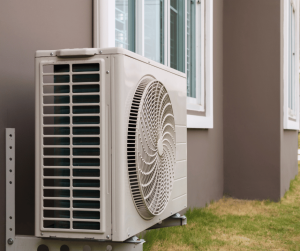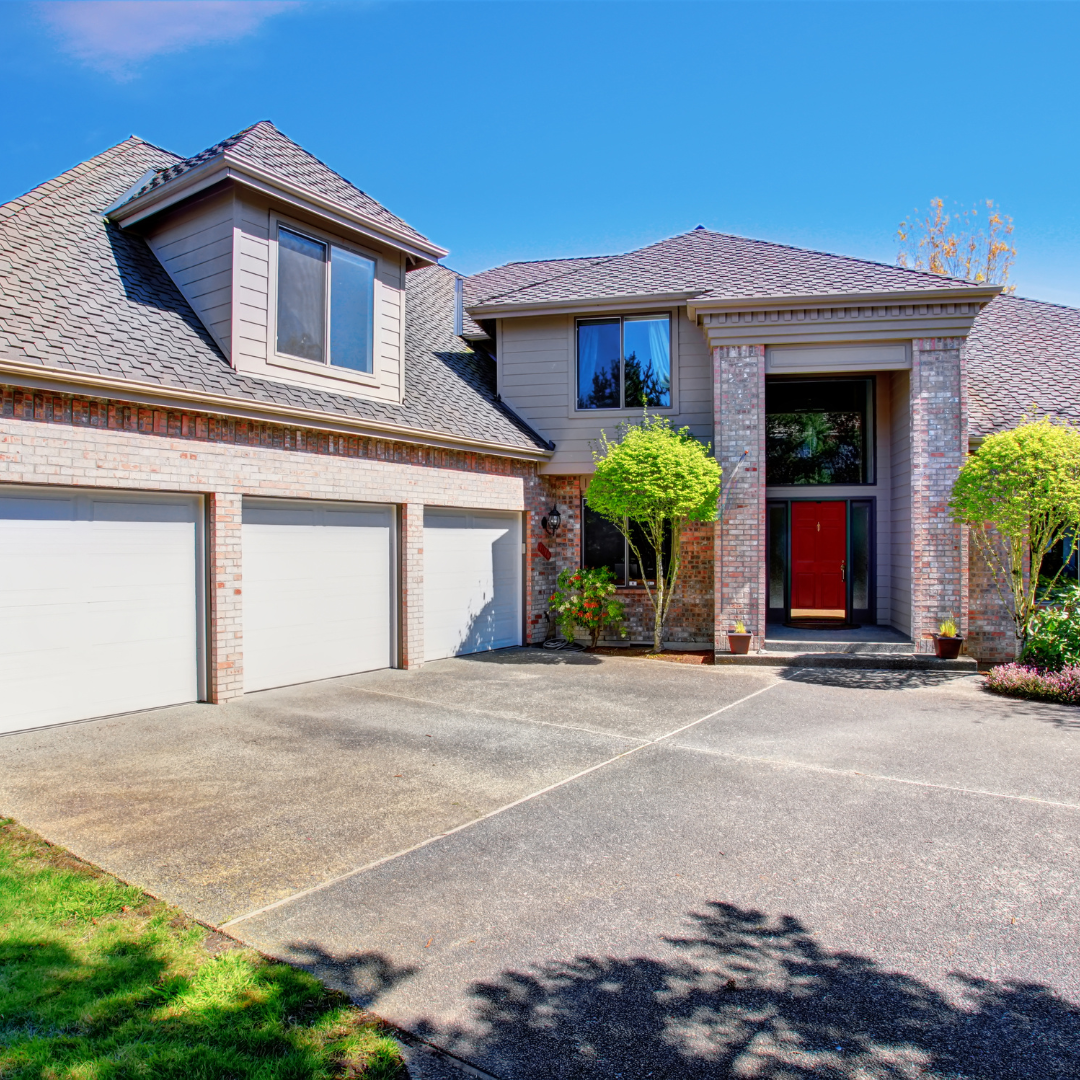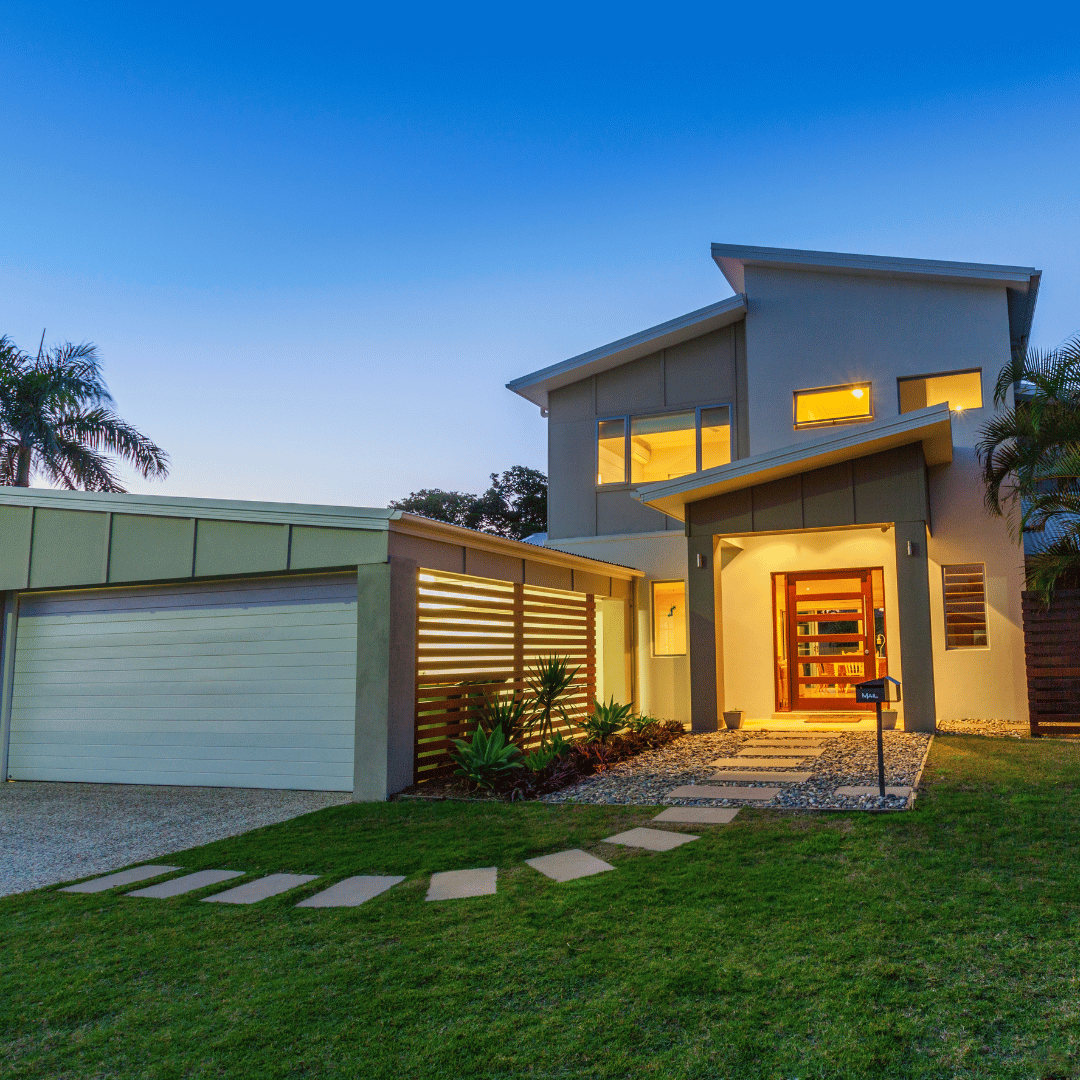
A Comprehensive Guide to Understanding HVAC Units
Welcome to HomeSmiles, your trusted partner in preventative home maintenance. At HomeSmiles, we understand the importance of maintaining a comfortable and healthy living environment for you and your family. One essential component of home comfort is your HVAC (heating, ventilation, and air conditioning) system, which plays a vital role in regulating indoor temperature, humidity levels, and air quality.
In this comprehensive guide, we’ll delve into the world of HVAC units, exploring their functionality, cost considerations, and factors to consider when purchasing or maintaining them. As part of our commitment to preventative home maintenance, we’re here to provide you with the knowledge and insights you need to make informed decisions about your HVAC system.
Throughout this guide, we’ll address common questions and misconceptions about HVAC units, including the difference between HVAC and AC, cost comparisons, and the best time to buy. Whether you’re a homeowner looking to upgrade your HVAC system or a renter interested in optimizing your indoor comfort, this guide is for you.
Join us as we navigate the world of HVAC units and discover how they contribute to a comfortable, healthy, and energy-efficient home environment. At HomeSmiles, we’re dedicated to helping you maintain a home that you can be proud of, both inside and out.
What is an HVAC Unit?
HVAC, which stands for Heating, Ventilation, and Air Conditioning, refers to a system designed to provide indoor comfort by controlling temperature, humidity, and air quality within a building. Here’s a breakdown of the components and functions of an HVAC unit:
Heating
The heating component of an HVAC system is responsible for warming the air to maintain a comfortable indoor temperature during colder months. Common heating systems include furnaces, heat pumps, and boilers, which use various fuels such as natural gas, electricity, or oil to generate heat.
Ventilation
Ventilation involves the exchange of indoor and outdoor air to remove stale air, control moisture levels, and introduce fresh air into the living space. Proper ventilation is essential for maintaining indoor air quality and preventing the buildup of pollutants, allergens, and moisture-related issues.
Air Conditioning
The air conditioning component of an HVAC system is responsible for cooling the indoor air during warmer months to maintain a comfortable temperature. Air conditioners, heat pumps, and ductless mini-split systems are common types of cooling equipment used in HVAC systems.
Together, these components work harmoniously to regulate indoor temperature, humidity, and air quality, creating a comfortable and healthy living environment for occupants. Proper maintenance and regular servicing of HVAC units are essential to ensure optimal performance, energy efficiency, and longevity.
At HomeSmiles, we understand the importance of maintaining a well-functioning HVAC system as part of your interior home maintenance routine. Our preventative home maintenance services include HVAC inspection, cleaning, and tune-ups to keep your system running smoothly and efficiently throughout the year.
Is HVAC the Same as AC?
While HVAC (Heating, Ventilation, and Air Conditioning) and AC (Air Conditioning) are related concepts, they refer to different systems with distinct functionalities. Here’s a comparison to clarify the differences between the two:
HVAC (Heating, Ventilation, and Air Conditioning)
- HVAC systems encompass a broader range of functions beyond air conditioning alone.
- In addition to cooling, HVAC systems also provide heating and ventilation capabilities.
- Heating components in HVAC systems include furnaces, heat pumps, and boilers, which generate warmth during colder months.
- Ventilation is a critical aspect of HVAC systems, involving the exchange of indoor and outdoor air to maintain air quality and freshness.
- HVAC systems offer comprehensive climate control solutions for indoor comfort throughout the year, addressing heating, cooling, and ventilation needs.
AC (Air Conditioning)
- AC specifically refers to systems designed to cool indoor spaces by removing heat and humidity from the air.
- AC units typically consist of a compressor, condenser, evaporator coil, and refrigerant, which work together to transfer heat from inside to outside, thereby cooling the indoor air.
- Unlike HVAC systems, AC units focus solely on cooling and do not include heating or ventilation components.
- AC units are commonly used in regions with hot climates or during the warmer months to maintain comfortable indoor temperatures.
In summary, while both HVAC and AC systems are designed to regulate indoor temperature and enhance comfort, HVAC systems offer a more comprehensive solution by incorporating heating, ventilation, and air conditioning capabilities. Depending on your specific needs and climate requirements, you may opt for either an AC unit for cooling purposes only or an HVAC system for integrated heating, ventilation, and cooling solutions.
At HomeSmiles, we offer comprehensive preventative home maintenance services to ensure the optimal performance and efficiency of your HVAC system or AC unit. Whether you need maintenance, repairs, or upgrades, our experienced technicians are here to help you maintain a comfortable and healthy living environment.
Is HVAC More Expensive than AC?
Determining whether HVAC systems are more expensive than standalone AC units depends on several factors, including initial installation costs, long-term operating expenses, and the specific features and components of each system. Here’s a comparison to help you understand the cost considerations:
Initial Installation Costs
- HVAC systems typically involve higher upfront installation costs compared to standalone AC units. This is because HVAC systems include additional components for heating and ventilation, such as furnaces, heat pumps, and ductwork, which can increase the overall cost of installation.
- Standalone AC units, on the other hand, focus solely on cooling and may be more affordable to install, especially for smaller homes or spaces where heating and ventilation are not required.
Long-Term Operating Expenses
- While HVAC systems may have higher initial installation costs, they can offer potential long-term savings in terms of energy efficiency and utility bills. HVAC systems with high-efficiency ratings and advanced features, such as variable-speed motors and programmable thermostats, can help reduce energy consumption and lower operating expenses over time.
- Standalone AC units may be less energy-efficient compared to HVAC systems, particularly if they are older models or lack advanced features. This can result in higher energy bills and increased operating expenses, especially during peak cooling seasons.
Maintenance and Repairs
- HVAC systems may require more extensive maintenance and repairs compared to standalone AC units, primarily due to the additional heating and ventilation components. Regular maintenance, such as filter replacements, duct cleaning, and system inspections, is essential to ensure optimal performance and longevity of HVAC systems.
- Standalone AC units may have simpler maintenance requirements and fewer components to maintain, potentially resulting in lower maintenance costs over time.
Customization and Features
- HVAC systems offer greater flexibility and customization options compared to standalone AC units. Homeowners can choose from a variety of heating and cooling options, zoning systems, and advanced features to meet their specific comfort needs.
- Standalone AC units may offer fewer customization options and features, especially for homes that require both heating and cooling solutions.
In summary, while HVAC systems may involve higher upfront costs compared to standalone AC units, they offer comprehensive heating, ventilation, and cooling solutions that can lead to long-term savings, energy efficiency, and enhanced comfort. Homeowners should consider their specific needs, budget, and long-term goals when deciding between HVAC systems and standalone AC units.
At HomeSmiles, we understand the importance of choosing the right HVAC system or AC unit for your home. Our team can provide expert guidance and assistance in selecting, installing, and maintaining your HVAC system to ensure optimal performance and efficiency for years to come.
What is the Cheapest HVAC Unit?
When considering the cost of HVAC units, it’s essential to understand that pricing can vary significantly based on factors such as brand, size, efficiency, and features. While there isn’t a one-size-fits-all answer to what the cheapest HVAC unit is, there are several options to consider for budget-friendly solutions:
Entry-Level Models
Many HVAC manufacturers offer entry-level models that provide basic heating, ventilation, and cooling capabilities at a lower price point. These models may have fewer advanced features but can still deliver reliable performance and efficiency.
Single-Stage Systems
Single-stage HVAC systems are typically more affordable than their multi-stage counterparts. While they may not offer the same level of energy efficiency or comfort control, single-stage systems can still provide adequate heating and cooling for smaller homes or budget-conscious homeowners.
Basic Efficiency Ratings
HVAC units with lower efficiency ratings (SEER for cooling and AFUE for heating) tend to be more affordable upfront but may result in higher long-term operating costs due to increased energy consumption. Homeowners on a tight budget may opt for units with basic efficiency ratings and prioritize other cost-saving measures.
Compact Ductless Systems
Ductless mini-split systems offer a cost-effective alternative to traditional HVAC systems, especially for homes without existing ductwork. These systems consist of an outdoor compressor unit and one or more indoor air handlers, providing targeted heating and cooling to specific areas of the home without the need for ductwork installation.
Package Units
Package HVAC units, which contain all components (heating, cooling, and ventilation) in a single outdoor cabinet, can be a more economical option for certain applications, such as mobile homes or commercial buildings. These units are factory-assembled and pre-wired, simplifying installation and reducing labor costs.
While choosing the cheapest HVAC unit may seem appealing from a budget standpoint, it’s essential to consider factors such as energy efficiency, reliability, and long-term operating costs. Investing in a higher-quality HVAC unit with better efficiency ratings and advanced features may result in greater savings and comfort over time.
At HomeSmiles, we understand the importance of finding the right HVAC solution that fits your budget and needs. Our team can provide expert advice and assistance in selecting and installing a cost-effective HVAC unit that maximizes comfort and efficiency while minimizing upfront costs.
What Time of Year is Cheapest to Buy HVAC?
Timing your HVAC purchase can significantly impact the overall cost, as seasonal factors and industry trends influence pricing and availability. Here’s a breakdown of the best times of year to buy HVAC units and take advantage of potential savings:
Off-Season Months
The shoulder seasons of spring and fall are typically considered the best times to purchase HVAC units, as demand is lower and manufacturers may offer discounts or promotions to stimulate sales. During these off-peak months, you’re more likely to find competitive pricing and special offers from HVAC suppliers and contractors.
End-of-Season Clearance Sales
Towards the end of each heating or cooling season, HVAC retailers and contractors may offer clearance sales to make room for new inventory. This is an excellent opportunity to score discounts on remaining stock from the previous season, including HVAC units, accessories, and installation services.
Pre-Season Planning
Planning ahead and purchasing your HVAC unit before the peak heating or cooling season begins can help you secure better deals and avoid rush fees or delays. By scheduling installation during the off-season, you can take advantage of lower labor costs and ensure timely service without competing with high demand.
Promotional Events
Keep an eye out for promotional events and sales events hosted by HVAC manufacturers, distributors, and retailers. These events may coincide with holidays, trade shows, or other industry milestones and offer exclusive discounts, rebates, or financing options for HVAC purchases.
Negotiating with Contractors
Don’t hesitate to negotiate with HVAC contractors and suppliers to secure the best possible price for your HVAC unit. Obtain multiple quotes, compare pricing and service offerings, and leverage competing bids to negotiate discounts or additional incentives.
Ultimately, the cheapest time to buy an HVAC unit will depend on your specific circumstances, market conditions, and timing. By being proactive, flexible, and strategic in your purchasing approach, you can maximize savings and get the most value out of your HVAC investment.
At HomeSmiles, we understand the importance of making informed decisions when purchasing HVAC units. Our team can provide expert guidance and assistance in selecting, purchasing, and installing the right HVAC system for your home, ensuring optimal comfort, efficiency, and savings throughout the year.
What Size HVAC for 1500 sq ft?
Choosing the right size HVAC unit is crucial to ensure optimal performance, energy efficiency, and comfort in your home. For a 1500 square foot space, several factors need to be considered when determining the appropriate size HVAC unit:
Load Calculation
HVAC professionals use a process called load calculation to determine the heating and cooling needs of a home based on factors such as square footage, insulation levels, window size and orientation, ceiling height, and local climate conditions. This calculation helps determine the BTU (British Thermal Unit) requirements for the HVAC unit.
Square Footage
While square footage is an essential factor, it’s not the sole determinant of HVAC size. A 1500 square foot home with high ceilings, large windows, or poor insulation may require a larger HVAC unit to adequately heat or cool the space, while a well-insulated and energy-efficient home may require a smaller unit.
Climate Considerations
The climate in which your home is located also influences the size of the HVAC unit needed. Homes in colder climates may require a larger heating capacity, while homes in warmer climates may require a larger cooling capacity.
Efficiency Ratings
In addition to size, it’s essential to consider the energy efficiency ratings of HVAC units, such as SEER (Seasonal Energy Efficiency Ratio) for cooling and AFUE (Annual Fuel Utilization Efficiency) for heating. Higher efficiency units may cost more upfront but can result in lower long-term operating costs and energy savings.
Consultation with HVAC Professional
To ensure the correct sizing of your HVAC unit, it’s recommended to consult with a qualified HVAC professional who can perform a thorough assessment of your home’s heating and cooling needs. They will take into account various factors and recommend the appropriate size and type of HVAC unit for optimal performance and efficiency.
In summary, the size of the HVAC unit needed for a 1500 square foot home depends on factors such as square footage, insulation, climate, and efficiency ratings. Working with a reputable HVAC professional is essential to ensure accurate sizing and proper installation, maximizing comfort and energy efficiency in your home.
At HomeSmiles, we understand the importance of selecting the right HVAC unit for your home’s specific needs. Our team of experienced professionals can provide expert guidance and assistance in choosing, sizing, and installing the perfect HVAC system to keep your home comfortable year-round.
In conclusion, understanding the intricacies of HVAC units is essential for maintaining a comfortable, healthy, and energy-efficient home environment. Throughout this guide, we’ve explored key aspects of HVAC systems, including their components, differences from standalone AC units, cost considerations, and factors to consider when purchasing and sizing.
At HomeSmiles, we’re committed to helping homeowners make informed decisions about their HVAC systems and providing expert assistance in maintaining, repairing, and upgrading their units as needed. Whether you’re looking to purchase a new HVAC unit, optimize the efficiency of your existing system, or schedule preventative maintenance to keep everything running smoothly, we’re here to help.
By prioritizing preventative home maintenance, including HVAC care, you can ensure the long-term performance, reliability, and efficiency of your home’s heating and cooling systems. From interior home maintenance tasks like HVAC inspections and filter replacements to exterior services such as gutter cleaning and pressure washing, HomeSmiles offers comprehensive solutions to keep your home in top condition year-round.
Thank you for joining us on this journey to explore HVAC units and their importance in maintaining a comfortable living environment. If you have any questions or need further assistance with your HVAC system or other home maintenance needs, don’t hesitate to reach out to the experts at HomeSmiles. Together, we can ensure your home remains a haven of comfort, safety, and peace of mind for years to come.
- Protecting Your Property: Why the Right Cleaning Method Makes All the Difference
- The #1 Thing That’s Dulling Your Curb Appeal (And How to Fix It)
- How Maintenance Bundles Provide Peace of Mind for Busy Small Business Owners and Facility Managers
- Essential vs. Complete Home Packages: Choosing the Right Preventive Care for Your Property
- How a Simplified Service Model Benefits Both Homeowners and Franchisees Alike


